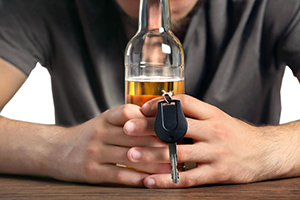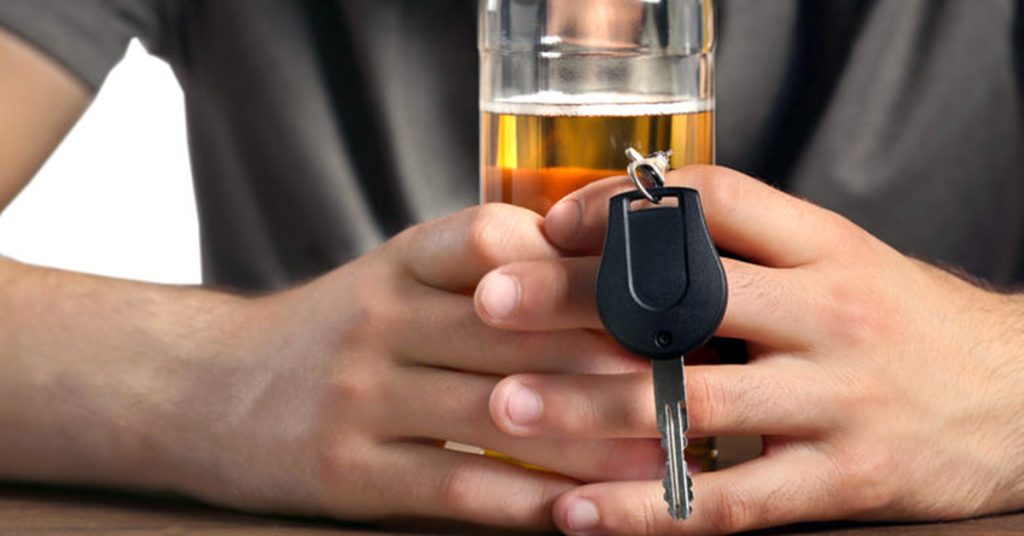Posts Tagged ‘teen car accidents’
Discouraging Underage Drinking and Driving Accidents in Massachusetts

Teens are more likely to be killed in an alcohol-related crash than anyone else on the roads, according to the CDC.
Teen Driver Safety Week is Oct. 18-24, 2020. Breakstone, White & Gluck is sharing articles to encourage parents and teens to collaborate and discuss safe driving decisions.
As every parent well knows, it is not easy to talk to your teen about safe driving decisions. You may talk, while your teen just looks at your car keys. Despite the challenges, we encourage you to be patient and stay the course in these conversations, especially when it comes to discouraging drinking and driving.
Talk to your teen about their responsibilities. In Massachusetts, teens who are between 16 ½ and 18 are eligible for a junior operator’s license. Teens face special restrictions, such as they cannot carry friends who are under 18 without supervision for the first six months of driving. They are also banned from driving between midnight and 5 a.m. Like all drivers, junior operators are not allowed to drive under the influence of alcohol or drugs under any circumstances. They can face criminal penalties for operating to endanger/recklessly or while negligent. But the greatest danger is teens who operate while impaired are more likely to cause a drunk driving accident due to their impairment and poor choice.
We are writing about this because teens are more likely to avoid drinking and driving when they make the decision in advance, with a parent’s support, not to drink until they are 21.
Teach teens to respect the legal drinking age. In Massachusetts, you must be at least 21 years old to legally consume alcohol. Make sure your teen knows you expect them not to drink until they reach the legal age. Let them know they can talk to you or another family member if they face pressure to drink or someone offers them alcohol.
Be honest about why you want your teen to avoid alcohol. Explain that you want them to live the best life they can. As a teen, they are still developing physically, cognitively, socially and emotionally. As this happens, teens are still developing their values and their compass for making good decisions.
Consider this: those age 12 to 20 consume 11 percent of all alcohol in the United States, according to the Centers for Disease Control and Prevention (CDC). Because of their inexperience, teens are more likely to consume more drinks than an adult drinker.
Risk for injuries when teens drink and drive. Teens are more likely to be killed in an alcohol-related crash than anyone else on the roads, according to the CDC. In 2016, 1 out of 5 teens involved in fatal car crashes had been drinking.
Teens can put themselves at risk when they drive drunk, but another danger is when they travel with friends who have consumed alcohol. According to the 2017 National Youth Risk Behavior Survey, 16.5 percent of high school students had traveled with a driver who had consumed alcohol in the previous month. This is a revealing number, but it gets worse.
Unfortunately, drinking and driving just paves the way for other poor decisions. According to the CDC, nearly 60 percent of the drivers age 15-20 who were killed in car crashes after drinking and driving weren’t wearing seat belts. Nearly a third of all male drivers in this age group were speeding when they crashed and 20 percent had been drinking and driving.
A teen who consumes alcohol, then causes a car accident resulting in injury may face criminal consequences. Parents can also be held liable for personal injuries if the victim pursues a claim against your car insurance policy or a civil lawsuit. For a teen, the experience of injuring another person is hard to recover from. It’s incredibly more painful when they were being reckless, such as operating under the influence of alcohol.
What you can offer your teen is support and guidance. Look for a teen-parent driving contract online for help. Review the agreement with your teen and make sure they know that you will always come pick them up if they need a ride. Also let them know that driving mistakes and accidents do happen. But you can’t support unsafe choices like drinking and driving, which endangers them and others on the road.
Other negative effects of teen drinking. The consequences of underage drinking are very real, even beyond driving. Teens who engage in underage drinking are more likely to suffer from social problems, such as high absentee rates and failing grades, face legal problems such as arrest and experience physical fatigue and hangovers, according to the CDC. They are also more likely to become the victim of a physical or sexual assault. There can also be a long term impact on their physical development.
Tell your child what every adult knows: delaying that first drink can make life’s hard experiences a little more manageable. Make sure they know you are proud of them and that they should feel good about their decision.
Never provide alcohol to your teens. On the same note, it is illegal to provide alcohol to your teen and their friends. If you allow your teen or others to drink in your home and someone is injured as a result, you could face criminal arrest and even jail time under Massachusetts social host liability laws. There are many stories of parents who have allowed this or even supplied the alcohol. Sometimes, parents have thought it is better to keep teens close if they are going to drink. But this is a dangerous thought and you could end up financially responsible for a very painful situation.
Likewise, make sure you know where your teen is going and with whom. It doesn’t help your teen to spend time at a friend’s home where alcohol is readily available or where their parents or older siblings are frequently drinking in the home.
Free Legal Consultation – Boston Car Accident Attorneys
At Breakstone, White & Gluck, our lawyers provide aggressive and thorough representation to those injured by the negligence of other drivers across Massachusetts. If you have been injured, learn your legal rights. For a free legal consultation, contact our Boston car accident lawyers at 800-379-1244 or 617-723-7676 or use our contact form.
To learn more about our Project KidSafe campaign and our National Teen Driving Safety Week articles, visit www.bwglaw.com/project-kidsafe.
For Teen Drivers, Fewer Passengers is Safer

For safety, teens are not allowed to drive with their friends for the first six months of holding a driver’s license in Massachusetts.
Teen Driver Safety Week is Oct. 18-24, 2020. Breakstone, White & Gluck is sharing articles to encourage parents and teens to collaborate and discuss safe driving decisions.
In Massachusetts, drivers who are at least 16 ½ are eligible to receive their driver’s license after a six-month permit period. Because Massachusetts has a Junior Operator Law, teens do not immediately assume full driving privileges. There are restrictions to help reduce the risk of teen car accidents, including one on passengers.
For the first six months, Massachusetts junior operators are not allowed to travel with friends and others under age 18, unless accompanied by another driver who is at least 21 years old and meets other requirements mentioned in statute below. There is an exemption for siblings and family members. The passenger restriction is a critical part of the law, giving teens more time to learn road skills without the distraction of friends.
M.G.L. c.90 § 8 states, “No person holding a junior operator’s license shall operate a motor vehicle during the first 6 months of licensure while a person under 18 years of age, other than the operator or an immediate family member of the operator, is present in the vehicle unless also accompanied by another person, duly licensed by his state of residence, who is at least 21 years of age with at least 1 year of driving experience and who is occupying a seat beside the driver.”
The passenger restriction should be taken seriously. As we discuss below, the distractions of carrying other teens combined with driver inexperience, can contribute to the risk for car accidents resulting in catastrophic injuries such as brain injuries and paralysis, and death. Car crashes are the leading cause of death among teens, according to the Centers for Disease Control and Prevention (CDC). The junior operator law attempts to give teens more time for practice.
If stopped for carrying unlawful passengers, teens can lose their license for 60 days for the first offense. For the second offense, drivers face a 180-day license suspension and must attend driver attitudinal retraining. There is a one-year license suspension and driver attitudinal retraining for subsequent offenses.
More Passengers, More Risk for Crashes
Research has shown teens need the extra time driving without their friends.
Compared to no passengers, a 16- or 17-year-old’s risk for death per mile increases 44 percent when they carry just one passenger under the age of 21, according to the AAA Foundation for Road Safety. The risk doubles when a teen driver carries two passengers younger than 21. The death rate quadruples when there are three or more passengers.
The older the passenger, the less risk for a car accident. There is a 62 percent decrease for a crash when a passenger age 35 or older is aboard. Take this statistic as motivation to give your teens the keys as you ride along. If you develop a good routine with them, you can help them build a full range of driving skills.
As they become more skilled, reward them by letting them drive to new places – a special lunch spot or a scenic view. This helps them build skills, learn responsibility and find some enjoyment from driving. With more time, they can practice fundamentals, such as how to turn through that intersection near your home, how to check for cyclists and how to stop for pedestrians at crosswalks. When teens drive with their friends, they are less likely to give these things their full attention.
Come Up With a Driving Plan for Your Teen
The takeaway is come up with a plan for your family. If your teen just earned their Massachusetts junior operator license, the state says they are not allowed to drive with friends under 18 for the first few months but that they can drive with their siblings right away. Remember, the law is a guide. This is your choice to make based on what your teen and their siblings are ready for. Your goal is to help your teen steer clear of car accidents. Think about each situation before you say yes.
When your teen is allowed to start driving passengers under 18, take another pause. The data still shows fewer passengers is safer.
You may want to start slow. Allow your teen to drive with just one friend. Choose a friend who is responsible, trustworthy and has a parent whom you know well and shares your views on raising safe and responsible teen drivers. That parent should also share your views on open communication. If something should happen and your teen should find themselves at risk, you want your teen and their friend to both feel they can call for a ride.
Free Legal Consultation – Boston Car Accident Lawyers
Breakstone, White & Gluck has decades of experience representing by negligent driving in Boston, Cambridge, Quincy and across Massachusetts. Through our Project KidSafe campaign, we work to protect children and families. Each year, we write about National Teen Driver Safety Week to encourage parents and teens to talk about safety on the roads.
If you have been injured and want to consult a Boston car accident lawyer, you can visit our website or contact our attorneys at 800-379-1244 or 617-723-7676 for a free legal consultation. You can also use our contact form.



